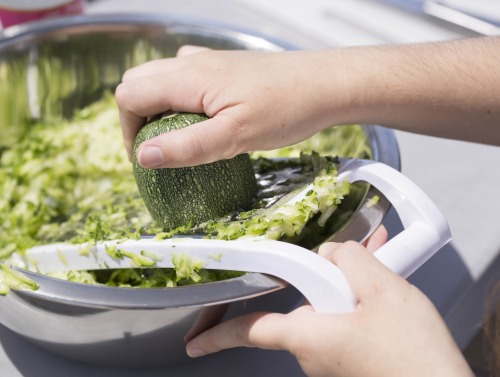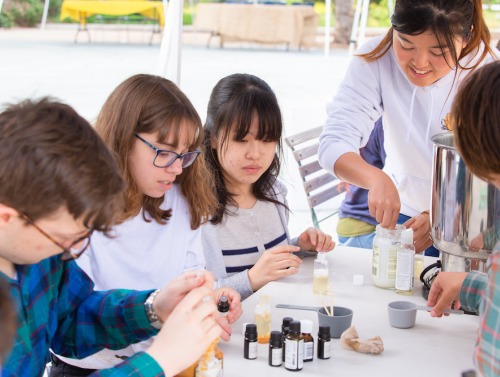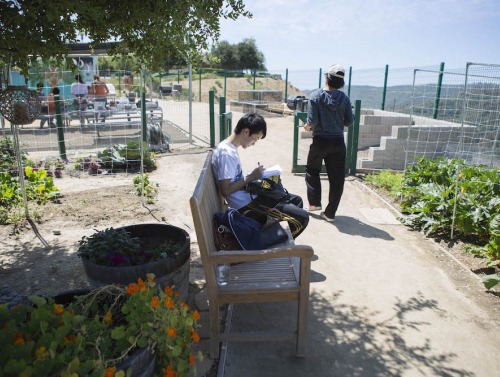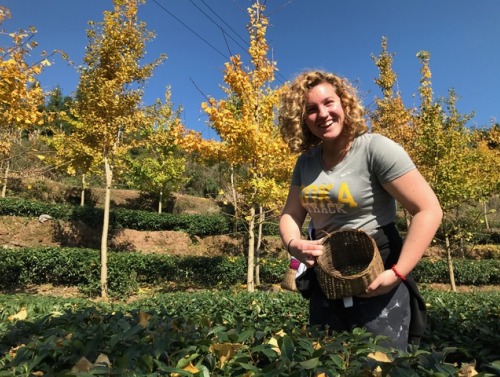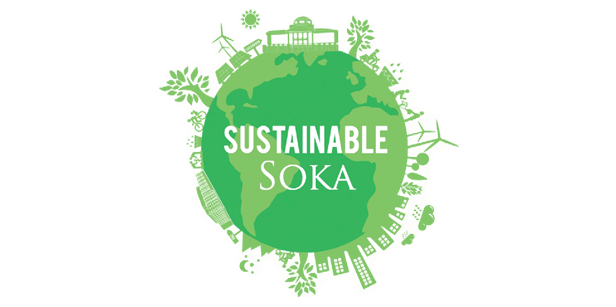
Sustainability
The students, faculty, and staff of SUA work together to create a sustainable campus, in alignment with our mission of creating citizens active in creating global change.
Mission Statement and Principles
With the guiding principle: “To foster leaders for the creative coexistence of nature and humanity,” Soka University of America recognizes sustainability as intrinsic to our mission and values. To foster such global citizens living a contributive life, we engage all members of our campus community to incorporate sustainable practices in all areas of university activity, including teaching, research, planning, operations, and student engagement.
By utilizing specific measures of success and communicating our achievements, Soka University of America strives to become a role model for sustainable practices and progenitor of future leaders and advocates for sustainability.
Soka University of America will:
- Integrate sustainability within the university’s operations and campus.
- Develop a comprehensive plan to attain climate neutrality.
- Maintain its environmental leadership by following recognized third-party standards.
- Require all new campus construction to be built to at least the US Green Building Council’s LEED Silver standard or the equivalent.
- Develop policies and programs to reduce and manage hazardous and polluting materials generated by university activities.
- Practice water conservation and manage runoff and stormwater pollution.
- Make its environmental policies, plans, and progress reports publicly available.
- Participate in the Association for the Advancement of Sustainability in Higher Education (AASHE).
- Meet or exceed all federal, state, and local safety and environmental laws.
How We Make Soka a Sustainable Campus
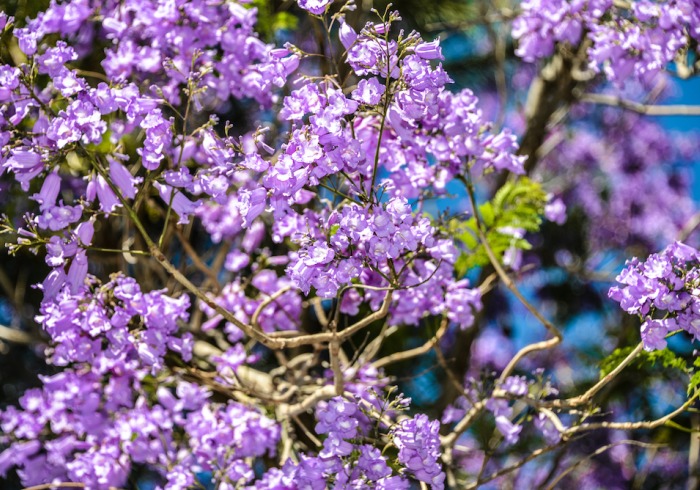
Facilities and Landscape Staff
See how the grounds management staff creates and contributes to sustainable practices on campus.
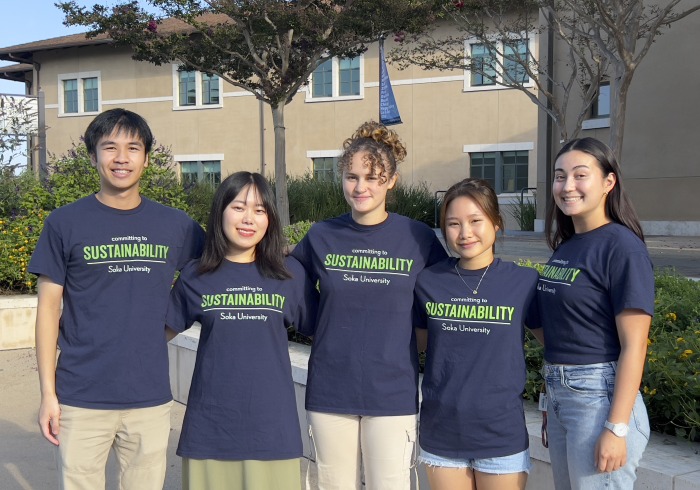
Sustainability Groups
Meet the people working to promote and engage dialogue and action about sustainability on campus.
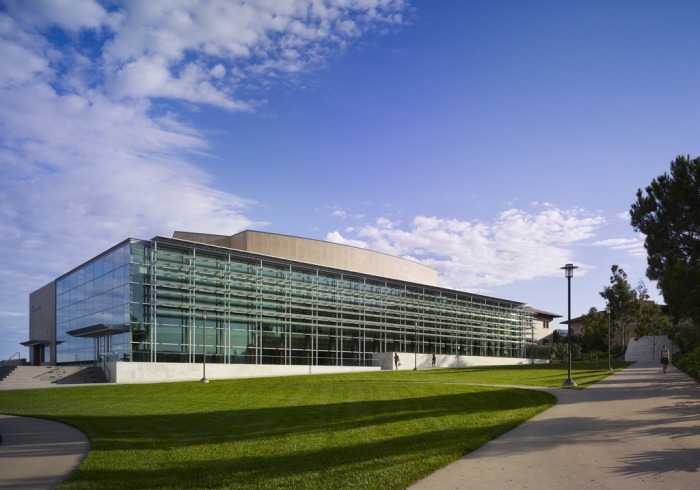
LEED Buildings
Find more information on the LEED Gold Certified Soka Performing Arts Center and adjacent academic building Wangari Maathai Hall.
Sustainability in Everything We Do
STARS Sustainability Assessment
The Sustainability Tracking Assessment and Rating System (STARS) is a comprehensive sustainability rating system that allows institutions to measure, track, and improve their sustainability performance. SUA completed its first STARS assessment report in 2017 and plans to pursue further advancements through student-led projects, increased outreach, and policy implementation.
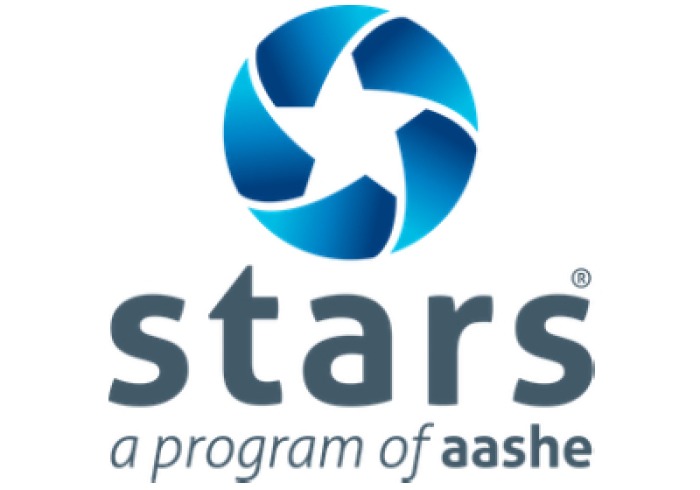
STARS Report
Key factors contributing to SUA’s STARS rating: the sustainability focus of courses and faculty/student research, public engagement activities and community partnership, student involvement in community service, and membership with the Worker Rights Consortium.
Investment
Collectively, colleges and universities invest hundreds of billions of dollars. By using the tools of sustainable investing, institutions can improve the long-term health of their endowments, encourage better corporate behavior, support the development of sustainable products and services, and help build a more just and sustainable financial system. This impact area covers sustainable investment policies, divestment, investor engagement, holdings disclosure, and positive sustainability investments.
Soka University is featured as Top Performer in the 2025 Sustainable Campus Index for the Investment section.
Awards
- STARS Silver Rating – 2025; Featured as Top Performer in the Sustainable Campus Index for the Investment.
- STARS Silver Rating – 2018; Received a Silver rating in the Sustainability Tracking Assessment and Rating System (STARS) program.
- STARS Bronze Rating – 2017; Received a Bronze rating in the Sustainability Tracking Assessment and Rating System (STARS) program.
- OC Metro Green Team Award – 2012; Recognized as one of the top 25 green companies in Orange County paving the way and setting industry standards for being greener.
- Orange County Arts Achievement Award for Outstanding Contribution to the Built Environment – 2012 (Performing Arts Center and Maathai Hall); Recognized for an outstanding facility by the community
- Leadership in Energy and Environmental Design (LEED) Gold Certification – 2011 (Performing Arts Center and Maathai Hall); Recognized for the design, construction, and operation of high-performance green buildings by the US Green Building Council.
Annual Campus Sustainability Report [PDF]
Frequently Asked Questions
Thank you to Hunter Somsen for his campus energy research, Scott Collins, and Mal Thomas from Facilities Service Partners for providing information and answering these questions. The content was written, complied, and edited by Lauren Ng. If you notice any information to be updated, please email sustainabilityeducators@soka.edu.
Anthropology
- ANTH100 Introduction to Socio-Cultural Anthropology
- ANTH313 Latin American/US Migration
- ANTH315 Urban Anthropology
- ANTH325 Inequality, Repression and Resistance in Central America
- ANTH348 Cross-Cultural Gender
- ANTH384 Indigenous North America
- ANTH401 Power, Poverty and Urban Life
Biology
- BIO110 Nature and Humanity
- BIO120 The Human Body
- BIO122 Marine Biology
- BIO141 Organisms to Ecosystems
- BIO306 Zoology
Chemistry
Core
Ecology
- ECOL211 Sustainable Aquaculture
- ECOL330 Fish Biology
- ECOL402 Aquatic Conservation
- ECOL435 Alien Invaders
- ECOL444 Hypothesis Testing in Ecology
Economics
Environmental Policy
- EMP320 Environmental Planning
- EMP325W Public and Environmental Health Policy
- EMP330 Sustainable Cities
- EMP335 Cities in the Global South
- EMP340 Environmental Movements
- EMP350 Environmental Policy
- EMP380W Environmental Law
- EMP400W Environmental Management
- EMP430 Urban Planning
Environmental Studies
Earth and Ocean Sciences
Geography
- GEOG110 Regional Geography of the Pacific Rim
- GEOG250 Physical Geography
- GEOG350 Intro to GIS
- GEOG400 Advanced GIS
- GEOG440 Biogeography
History
- HIST242 American in the Era of Slavery
- HIST326 Women in East Asia
- HIST330 Modern China in Literature and Film
- HIST380 Cultures of Learning
International Studies
- INTS111 Introduction to International Relations
- INTS114 Introduction to Peace Studies
- INTS125 Introduction to East Asian Studies
- INTS130 Intro Latin American Studies
- INTS140 Intro to European Studies
- INTS150 Introduction to Southeast Asian studies
- INTS170 Introduction to African Studies
- INTS205 Intro to Human Rights
- INTS215 Intro to Women’s Studies
- INTS240 Middle East Conflict
- INTS305 Democracy and Democratization
- INTS310 Peace and Conflict resolution
- INTS320 Politics and Governance in Asia
- INTS323 Political Economy of L. America
- INTS342 Asian America in Comparative Perspective
- INTS381 Political Islam in Comparative Context
- INTS382 Political Buddhism in Comparative Context
- INTS410 Plagues and Peoples
- INTS422 International Law
Literature
Learning Cluster
- LRNCLSTR 200-01 Homelessness
- LRNCLSTR 200-010 Global Citizen Practice
- LRNCLSTR 200-010 Marine Life Conservation
- LRNCLSTR 200-011 Living in Nature
- LRNCLSTR 200-011 Happiness
- LRNCLSTR 200-012 Social Entrepreneurship
- LRNCLSTR 200-013 Food Fermentation
- LRNCLSTR 200-014 Education for Happiness
- LRNCLSTR 200-015 Queer Memory Archive
- LRNCLSTR 200-016 Homelessness
- LRNCLSTR 200-018 Behavioral Ecology
- LRNCLSTR 200-019 Peacebuilding Business
- LRNCLSTR 200-020 Animal Behavior
- LRNCLSTR 200-021 Global Citizenship Education
- LRNCLSTR 200-026 Advancing the SDGs
- LRNCLSTR 200-026 Acjachemen & Global Indigeneity
- LRNCLSTR 200-027 Video Activism Social Movements
- LRNCLSTR 200-03 Authoritarian Politics
- LRNCLSTR 200-05 Contributing through Education
- LRNCLSTR 200-06 Critical Drag
- LRNCLSTR 200-07 Self-Government in Wales
- LRNCLSTR 200-09 Gendered Violence in Medicine
- LRNCLSTR 200-09 Period Poverty and Stigma
- LRNCLSTR 200-10 Traditional Medicine
- LRNCLSTR 200-12 Nuclear Disarmament
- LRNCLSTR 200-14 Dark Tourism Abandoned People
- LRNCLSTR 200-20 Global Warming on Diversity
- LRNCLSTR 200-21 Being a Global Citizen
- LRNCLSTR 200-22 Animal Behavior
- LRNCLSTR 200-23 Global Solutions
- LRNCLSTR 200-24 Ethics of Zoos
- LRNCLSTR 200-25 Whose Nature?
- LRNCLSTR 200-27 Mexican Indigeneity
- LRNCLSTR 200-31 Acjachemen Project
Music History
Pacific Basin
Philosophy
Political Science
- POLISCI305 Democracy and Democratization
- POLISCI335 Urban Politics
- POLISCI350 United Nations and World Politics
Psychology
Social Behavioral Science
Sociology
- SOC100 Introduction to Sociology
- SOC400 The Philosophy of Feminist and Queering Theory
- SOC410W Health Disparities
Writing
Yes! Our Campus Sustainability Committee meets twice per semester to review campus operations, student proposals, data for STARS reporting, and address concerns. There are 3-4 elected Student Sustainability Committee representatives each year that also attend each meeting. The committee is represented by staff members from facilities, student affairs, higher administration, dining, human resources, and one faculty member. Any questions or proposals for the committee can be brought to the Student Sustainability Committee or to Arch Asawa, who chairs the Sustainability Committee.
STARS stands for Sustainability Tracking and Rating System, and Soka has been an active member since 2016, having earned a Silver rating. Participating in this program and receiving our first rating was a sustainability milestone. It gives us a third-party verified, standardized method of answering the question, “how sustainable are we?” It is a program specific to institutions of higher education, meaning that in addition to tracking our use of water, energy, and waste production, it also assesses sustainability in our curriculum, our student activities, residential hall programming, and more.
Our current system is that all of the recyclables will be collected in clear plastic bags, placed in “mixed recycling” dumpsters, and sorted at the CR&R waste disposal facility. All trash will be collected in black plastic bags and placed in the trash compactor for the landfill.
The only exceptions will be the mixed paper collected in labeled beige office containers, shredded paper in clear plastic bags, light bulbs, batteries, and electronic components in labeled designated containers in selected locations.
The next phase will be the standardization of recycling containers to accommodate a “single-stream” (mixed-recycling) program with recycling containers at or near all trash containers. Offices will be provided with beige containers for mixed paper and any blue office recycling container will be removed so that recyclables will be collected from containers located in common areas and site locations.
Please continue to use the various types of recycling containers until they are phased out and replaced with new single-stream recycling containers.
The university pays CR&R for food waste from the dining hall to be picked up and used at a compost preparation facility in San Juan Capistrano.
The organic items are sorted out and called “fine” waste. Currently, “fine” waste is spread over landfills each day. This promotes decomposition. Next year, they are planning to take the fine waste directly to the green composting facility where our food waste currently goes.
Soka designates about $1.6 million dollars a year to the electricity bill alone. On average, Soka consumes 1 million kWh of electricity per month.
“Peak demand” is when the demand for energy is at its highest, due to factors like people coming home and using appliances, the temperature outside and our use of air conditioning/heating, etc. During peak demand, our electricity consumption exceeds the amount that regular power plants can supply. Therefore, our energy is supplied by burning fossil fuels at “peaker plants.” The peaker plants only exist because the demand for electricity exceeds the normal production for a few hours per day. By reducing our peak energy consumption, we can vastly reduce our greenhouse gas emissions.
The Performing Arts Center has a 102-kilowatt solar panel array on its roof that generates approximately 15% of the building’s energy usage. In terms of the whole campus, it is less than 1% of our total energy use. To date, the solar panels have generated 1,084,173 kWh of electricity. That is the amount of electricity to power 6,188 60-Watt light bulbs for one year.
In partnering with STEM, a company that utilizes artificial intelligence to monitor and optimize energy usage, Soka installed a 400kW battery storage system. The batteries are made of lithium-ion and have a similar design to cell phone batteries. These batteries are housed in the gymnasium, but a follow-up system will be located in the Ikeda library. The battery system is designed to work in two ways. The first is to decrease peak electricity usage. The system will draw energy from the grid during the night when the university uses the least amount of electricity. Then, during the height of electrical consumption, the batteries will discharge into Soka’s electrical grid and reduce the draw from the utility grid. The second way the battery operates, which is how our system currently operates, is that it discharges once a determined electrical demand is reached.
Buildings are required to have Egress lighting on 24/7 per Orange County Fire Authority.
There’s a combination of sensors and toggle switches for the different rooms as per design. There’s a sweep timer that shuts off the lights. This, of course, will be overridden if the user presses the switch and extends the “on” time for the space.
Some areas are scheduled to be watered during the day due to the size of the irrigation system and the pressure requirements needed to cover all the landscape areas in a 24-hour period.
Please report the leak to Campus Security!
Yes. Our landscaping team has been gradually converting areas of campus into drought-tolerant succulent landscapes.
Water savings through turf conversion:
From 2014-2015, we saved 4,241 gallons of water.
From 2015-2016, we further reduced 9,452 gallons.
From 2015-2016, we saved 6,823 gallons.
Total water savings = 20,516 gallons!
We love the owls. Our resident barn owls are not only beautiful, but they also help us control our rodent population without resorting to harmful chemicals. We have several owl boxes on campus to provide shelter for our helpful bird friends.
You can contact Mal Thomas at (949) 292-1918 or email the Student Sustainability Committee at sustainabilityeducators@soka.edu.

